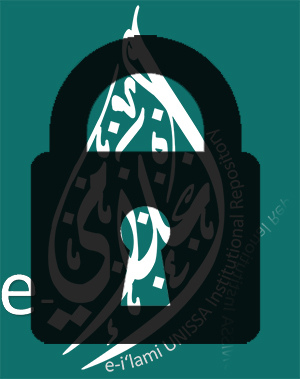Browsing ARTICLE by Subject "Islamic Law"
Now showing items 1-8 of 8
-
Doctrine of Good Faith in Contracts: A Comparison between Conventional and Islamic Laws.
(Prof.(Dr) RK Sharma, 2018-01-11)The doctrine of good faith is a vital issue amongst the contractual issues of this period .It is considered a main goal of every recognized law of contract system to be promoting good faith as well as fair dealing in forming and performance of contracts. Basically, it has been a common argument ...Islamic LawIndian Journal of Public Health Research & Development -
Examining the Traditional Waqf-Based Financing Methods and Their Implications on Socio-Economic Development
(International Organization Of Scientific Research (IOSR) IQSR Publications, 2015-02)Waqf properties constitute a large percentage of societal wealth in several Muslim countries. Yet, many Muslim countries are facing enormous socio-economic problems such as poverty, illiteracy and lack of basic healthcare services. These socio-economic problems encourage contemporary Muslim scholars ...Waqf; Islamic LawJournal of Business and Management -
Lawful and unlawful foods in Islamic law focus on Islamic medical and ethical aspects
(semantic scholar, 2009)In this paper, attempts will be made to study and understand the lawful and unlawful foods in the light of Islamic Medical law focus on ethical aspect that has been practiced during Islamic civilization. We will realize that lawful and unlawful foods are not, as some imagine, mere pretense, but rather ...Islamic LawInternational Food Research Journal -
NEW ESSENTIAL VALUES OF DARURIYYAH (NECESSITIES) OF THE OBJECTIVES OF ISLAMIC LAW (MAQASID AL-SHARI`AH)
(Institut Islam Hadhari Universiti Kebangsaan Malaysia, 2012)The main purpose of this article is to introduce two more essential values of daruriyyat (the essential/ the necessities) in accordance to objective of Islamic law namely preservation/protection of environment (Hifz al-Bi`ah) and preservation of health and protection of disease (hifz al-sihhah wa daf ...Islamic LawJURNAL HADHARI -
New Essential Values of Daruriyyah of the Objectives of Islamic Law
(Universiti Kebangsaan Malaysia, 2012)The main purpose of this article is to introduce two more essential values of daruriyyat (the essential/ the necessities) in accordance to objective of Islamic law namely preservation/protection of environment (Hifz al-Bi`ah) and preservation of health and protection of disease (hifz al-sihhah wa ...Islamic LawHadhari: An International Journal -
Orientalists Attack Against Prophetic Traditions: Awareness and Wake up Call
(Universiti Islam Sultan Sharif Ali, 2018-01-01)Orientalists had been working seriously towards the demolition of the second primary source of Islamic law where most Islamic proofs are derived. Given the strong links between the unnecessary allegations against some Prophetic traditions and irrelevant arguments about the compilation of Sunnah ...Islamic LawInternational Journal of `Umrānic Studies -
Shariah Arbitration in Islamic Finance Transaction: An Urgent Need for Muslim Arbitrators
(Pertanika, 2014-01-01)Muslim Arbitrators are needed to settle the dispute in Islamic Finance. The process Model in Shariah Arbitration may differ from the tahkim and conventional arbitration which is based totally on the UNCITRAL Arbitration Model and Rules. However, to be in line with internationality of the principles ...Islamic LawPertanika Journal of Social Science and Humanities -
Shariah Penal Code Order, 2013 of Negara Brunei Darussalam: Its Implementation and Challenges
(International Conference and Reference Publication, 2013)Shariah, or Islam law, is not foreign to Negara Brunei Darussalam. Its implementation started since the conversion of Awang Alak Betatar to the Islamic faith and assumed the royal name of Sultan Muhammad Shah (1363-1402 M).[1] Brunei, then, had officially accepted Islam as the religion of the ruler ...Islamic LawINTERNATIONAL CONFERENCE OF ASEAN PERSPECTIVE AND POLICY


